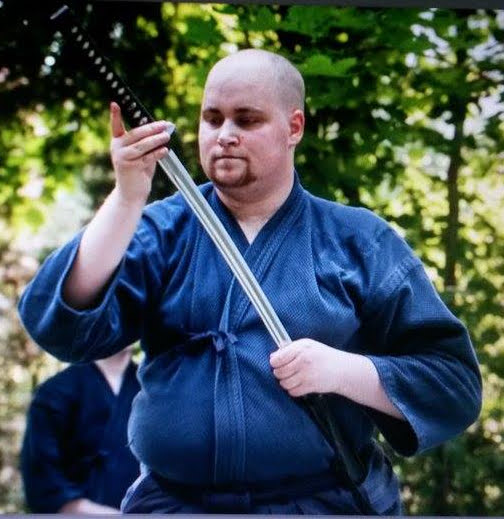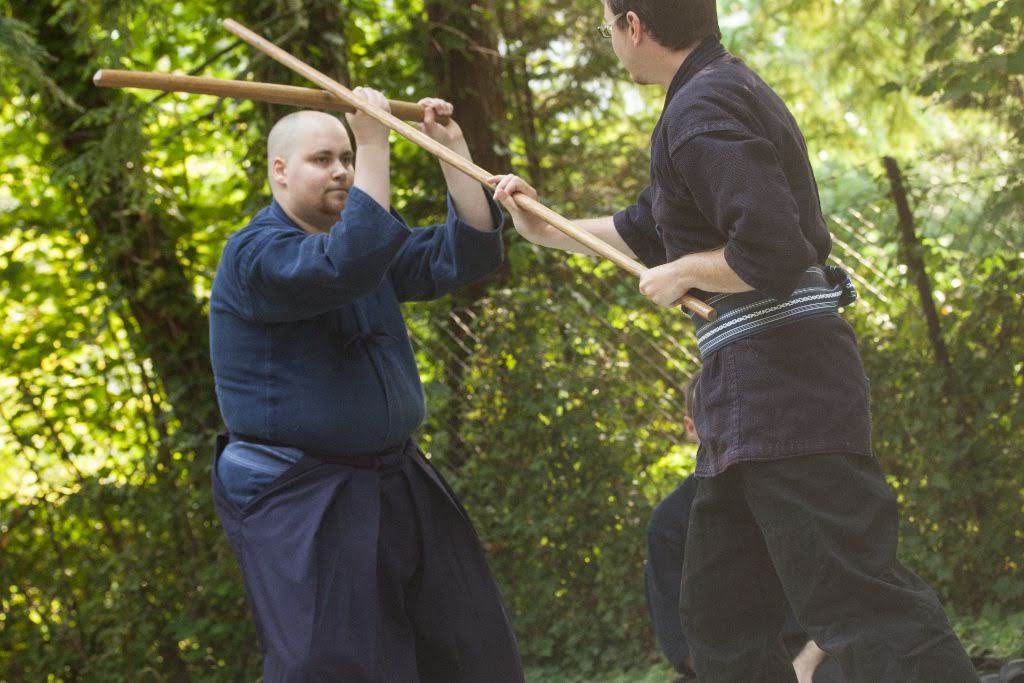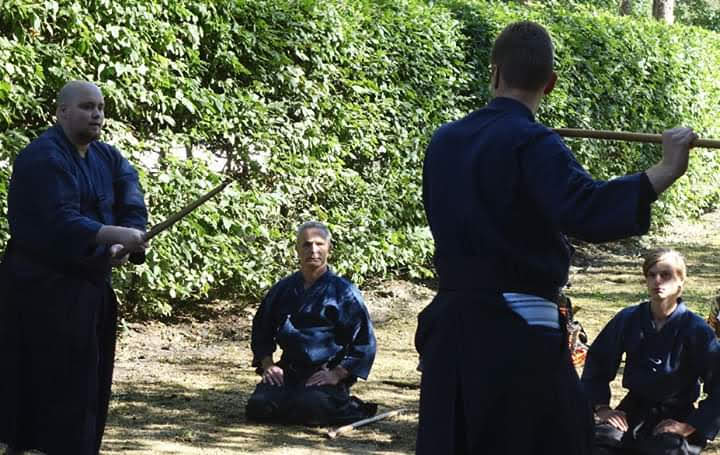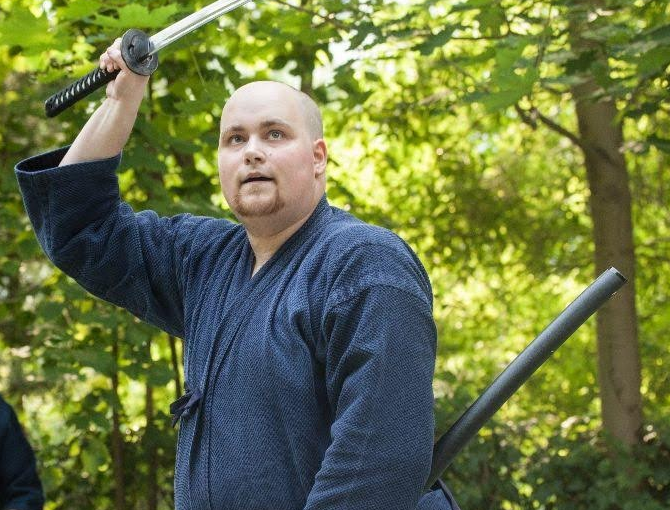Before the time of the Corona Pandemic, our keikojo gave two demonstrations every year. One in the summer at the summer festival of the German-Japanese Society of Berlin and the other in the winter at the Japan Festival in the Urania.

Many people surely have in mind people smashing bricks with their bare hands or a group of people performing the same kata in perfect synchronization when they think of the word “martial arts demonstration”. What also often exists are staged show fights including athletic gymnastics. A real show like you know it from the movies, accompanied by music to amuse the audience and to promote the own dojo.

However, such a show is far removed from classical demonstrations in Kobudo. In Japan, demonstrations began as something called honoenbu (奉納演武). These were ceremonies often performed in internal circles at shrines. The purpose was to honor the gods and the ancestors of the tradition and to demonstrate his skills before them. Only much later were these demonstrations opened to the general population.

Now here in the West we do not have Shinto shrines and our enbu are not honoenbu either. What remains the same is that the purpose of an enbu is to demonstrate the skills of the dojo. And this throughout, from the youngest beginner to the teacher. It should reflect the full spectrum of skill in a dojo. So nowadays the purpose of an Enbu is not to amuse or impress the audience, but rather to have a stressful training situation for the members. It is practically training with spectators.
Giving an Enbu is nerve-wracking. The environment is unfamiliar, often forcing you to work at an unfamiliar distance. The ground is uneven and in the grass you can often trip over a stone or branch. When performing on a stage, you have to deal with getting bright spotlights in your face. Also, children and teenagers are often merciless in commenting and ridiculing what they see there. This all contributes to an increased adrealine level which often leads to mistakes. The art of a good enbu is to be able to react appropriately to these mistakes, so that in the best case they are not noticed by the untrained eye of the audience.

From my own experience I can say that it is quite valuable to make the experience of an Enbu as a participant. It forces you to be more relaxed in front of an audience, strengthens your self-confidence and teaches you what it is like to be in an unknown situation. Of course, I’m still a little nervous before every Enbu, because every performance is different.

